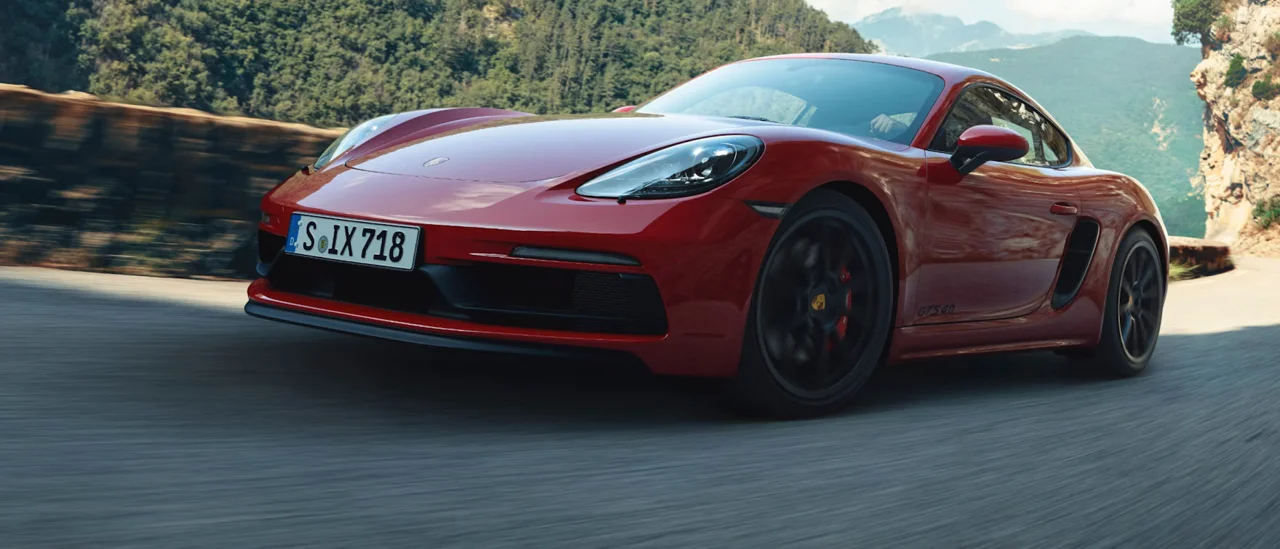What is the mileage of Porsche 718?
The Porsche 718 offers different mileage figures depending on the fuel type and transmission. The manual petrol variant delivers up to 0 km/l, while the automatic petrol variant offers up to 14 km/l.


7 - 14 kmpl
Petrol Mileage
Automatic
14 kmpl
Cayman
14 kmpl
Petrol • Automatic
ARAI mileage
Monthly Fuel cost for 40km/day₹8,123
Boxster
13 kmpl
Petrol • Automatic
ARAI mileage
Monthly Fuel cost for 40km/day₹8,748
Cayman Style Edition
14 kmpl
Petrol • Automatic
ARAI mileage
Monthly Fuel cost for 40km/day₹8,123
Boxster Style Edition
14 kmpl
Petrol • Automatic
ARAI mileage
Monthly Fuel cost for 40km/day₹8,123
Cayman GTS 4.0
10 kmpl
Petrol • Automatic
ARAI mileage
Monthly Fuel cost for 40km/day₹11,372
Boxster GTS 4.0
10 kmpl
Petrol • Automatic
ARAI mileage
Monthly Fuel cost for 40km/day₹11,372
Cayman GT4 RS
7 kmpl
Petrol • Automatic
ARAI mileage
Monthly Fuel cost for 40km/day₹16,246
Maintain your Porsche 718 in top-notch condition by regularly servicing the vehicle.
Be gentle with the accelerator pedal, and avoid sudden acceleration.
Maintain the optimum tyre pressure in your Porsche 718.
Maintain your Porsche 718 in top-notch condition by regularly servicing the vehicle.
Be gentle with the accelerator pedal, and avoid sudden acceleration.
The Porsche 718 offers different mileage figures depending on the fuel type and transmission. The manual petrol variant delivers up to 0 km/l, while the automatic petrol variant offers up to 14 km/l.
The Porsche 718 delivers excellent fuel efficiency in city conditions. The manual petrol variant achieves up to 0 km/l, while the automatic petrol variant delivers up to 14 km/l under typical city driving conditions.
The Porsche 718 manual transmission offers up to 0 km/l, while the automatic transmission delivers up to 14 km/l. The difference is minimal, making both options fuel-efficient choices.
The mileage of Porsche 718 can be affected by various factors including driving conditions, traffic patterns, vehicle maintenance, tire pressure, and driving style. Under optimal conditions, you can achieve up to 0 km/l with manual transmission and 14 km/l with automatic transmission.
Yes, the Porsche 718 is quite fuel efficient. It delivers up to 0 km/l with manual transmission and 14 km/l with automatic transmission, making it an economical choice for daily commuting.
Discover. Decide. Drive.
Explore at your pace, with expert recommendations if needed. Finalise and book your car at the best price.
Financing the right way
Access the best loan options with hassle-free, paperless financing.
Prepare to drive
Schedule delivery for your special day and track updates effortlessly.Schedule delivery for your special day and track updates effortlessly.